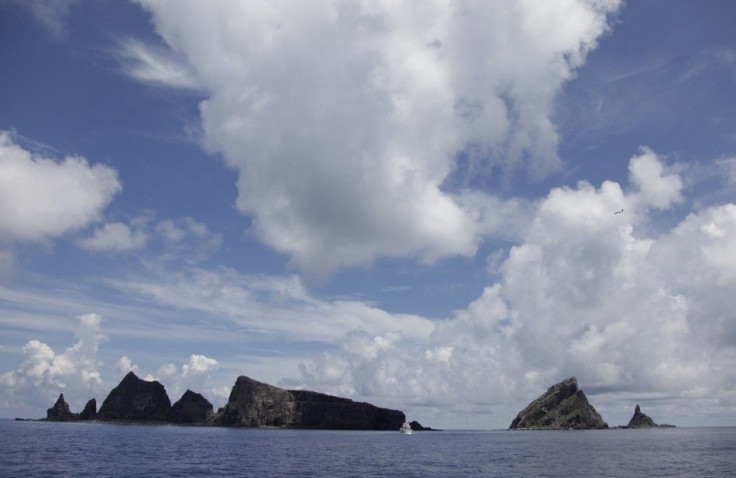US Takes Japan's Side On Disputed Territory in East China Sea, Saying 'Senkaku Islands' Fall Under 'Security Obligations'

The U.S. made its position on the East China Sea territorial dispute over the Diaoyu/Senkaku islands very clear this week when U.S. Defense Secretary Chuck Hagel met with his Japanese counterpart Itsunori Onodera.
During talks with Onodera, Hagel confirmed that the U.S. will be supporting Japan, clarifying its commitment to its ally by referring to the islands by their Japanese name “Senkaku” and saying that the islands “fall under our security obligations,” according to the English-language publication Japan News.
Though Hagel never referred to China by name when discussing the dispute, his strongly worded statements echoed the recent actions the U.S. has taken by sending warnings to China when its ships approached island waters.
“The United States opposes any unilateral or coercive action that seeks to undermine Japan’s administrative control [of the islands],” Hagel said.
The confirmation comes after several appeals from Japan’s government, urging Washington to speak in favor of Japan, instead of taking a neutral stance on the issue.
However, Japan’s recent fervor and nationalism, China warns, is something that the U.S. should be concerned about.
Most recently, Beijing’s government protested the sailing of 10 boats carrying Japanese activists, which circled the waters near the disputed island. Following that, a group of Japanese lawmakers visited a shrine that both China and South Korea see as a symbol of the nation’s past militaristic injustices.
“What kind of message does this send to the international community?” Cui Tiankai, China’s new ambassador to Washington, said in a statement issued by the Foreign Ministry, implying that paying homage at a shrine perceived to honor war criminals is nationalistic and dangerous.
“The U.S. side should stay alert against the recent provocative actions taken by Japanese political leaders,” state-run Xinhua News cited Cui as saying in a separate occasion.
Previously, an Australian academic, Hugh White, wrote an editorial about how he expected Japan and China to go to war within a year’s time and how the U.S. would get dragged in.
“Don’t be too surprised if the U.S. and Japan go to war with China next year over the uninhabited rocks,” White wrote in his editorial published by the Sydney Morning Herald.
White’s prophecy, while extreme, could come true; Japan and the U.S. are bound by a security treaty.
However, China insists that being on the wrong side of the dispute could lead to a strain on the Sino-American relationship in the long-term.
Cui also expressed hope that Washington would tread carefully in taking the Japanese stance, saying America could be “sacrificing its long-term benefits [presumably with China] for immediate short-term needs on the issue of the Diaoyu Islands,” the Xinhua report continued.
“We hope that other parties do not lift rocks for the Japanese, and we hope even more that these rocks don’t end up falling on their own feet,” Cui said.
Correction: A previous edition of this article said the Senkaku/ Diaoyu Islands were located in the South China Sea. They are located in the East China Sea.
© Copyright IBTimes 2024. All rights reserved.












